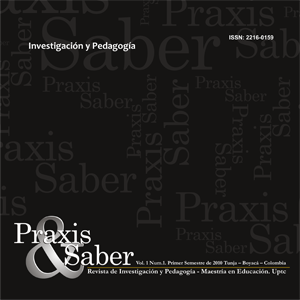School learning and knowledge: a conflict between the pedagogy of the answer and the pedagogy of the question

Abstract
Due to the fashions of the pedagogical tendencies that have invaded the school, it is worthy to analyze their origin and basis, and their truly intention, which usually comes hidden and it is intelligently imposed from the predominant economical models. For instance, it is denounced the falsity of the knowledge society, which is based upon the competence pedagogy,of to learn how to learn, of constructivism and the line of the reflexive teacher, that underestimates the scientific knowledge transmission and the accumulated experiences, that privileges the learning the individual realizes by himself (The New School). Those perspectives created an illusion about the easy way to the knowledge access, by means of the information systems, for them competence is more important than to acquire knowledge and to master theories. In the knowledge society all answers are offered to be consumed, according the client’s taste, only the answers are presented, but the questions that generate that knowledge are abandoned by the pragmatism of the immediate usage and by the opportunism of the information. In that sense, the so called the knowledge society is an ideology produced by capitalism, is a phenomenon of the capitalism ideological reproduction. In regard to the answer education, it tends to be a way to generalize, to repeat, to inhibit and “to domesticate”. The question education is presented as a new and creative proposal, capable to stimulate the human capacity to be astonished, to answer to one’s astonishment and to solve one’s own essential and existential problems. Synthesizing, the proposal of a revolutionary pedagogy, superior to the new and traditional pedagogy, should be a critical one. To make problem of something can be understood as to enquire the problem, to search for the problems that may be in the elaborated version about the phenomena in daily life, in the social practice. To make problems out of something means to be doubtful, to enquire, to question, to ask about the problem.Keywords
Question pedagogy, answer pedagogy, knowledge society, investigation, critical education.
References
- Abbagnano, N. (1970). Dicionário de Filosofia. São Paulo: Mestre Jou.
- Bachelard, G. (1989). Epistemologia. Barcelona: Anagrama.
- Cheptulin, A. (1982). Dialética materialista. São Paulo: Alfa-Omega.
- Comenio, J. A. (1985). Didáctica Magna. Lisboa: Fundação Calauste Gulbenkian.
- Duarte, N. (2003). Sociedade do conhecimento ou Sociedade das ilusões? Campinas, SP: Autores Associados.
- Freire, P. y Faundez, A. (1985). Por uma pedagogia da pergunta. Rio de Janeiro: Paz e Terra.
- Kopnin, P. V. (1978). A dialética como lógica e teoria do conhecimento. Rio de Janeiro. Civilização Brasileira.
- Kosik, K. (1995). Dialética do concreto. Rio de Janeiro: Paz e Terra.
- Manacorda, M. A. (1989). História da Educação: da antiguidade a nossos dias. São Paulo: Cortez.
- Marx, K. (1968). O Capital, Livro I, Volume I. Rio de Janeiro: Civilização Brasileira.
- Sánchez Gamboa, S. (1992). Comenio y la actual crisis de la didáctica. In: Momento Pedagógico. México, Universidade Pedagógica Nacional, abr-jun., pp. 6-11.
- Sánchez Gamboa, S. (2004). Retomando o debate sobre a pedagogia do movimento. In. Chaves, M. (Org.): Pedagogia do movimento: diferentes concepções. Maceió: Edufal, pp. 101-114.
- Saviani, D. (1980). Educação: do senso comum à consciência filosófica. São Paulo: Cortez; Autores Associados
- Saviani, D. (1986). Escola e Democracia. São Paulo: Autores Associados.
- Saviani, D. (1987). Ensino público e algumas falas sobre Universidade. São Paulo: Cortez/Autores Associados.
- Suchodolski, B. (1978). A pedagogia e as grandes correntes filosóficas: pedagogia da essência e da existência. Lisboa: Livros horizonte.
Downloads
Download data is not yet available.